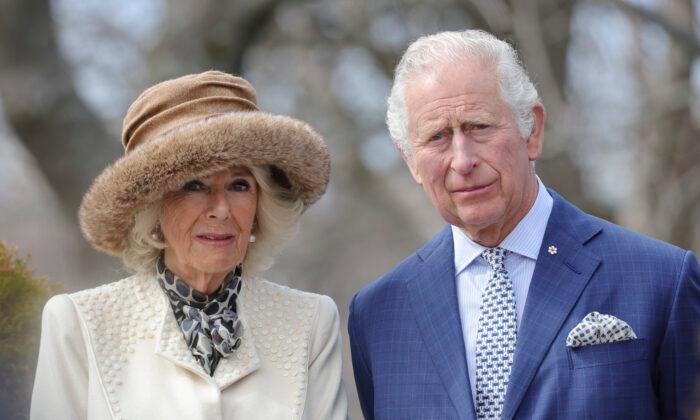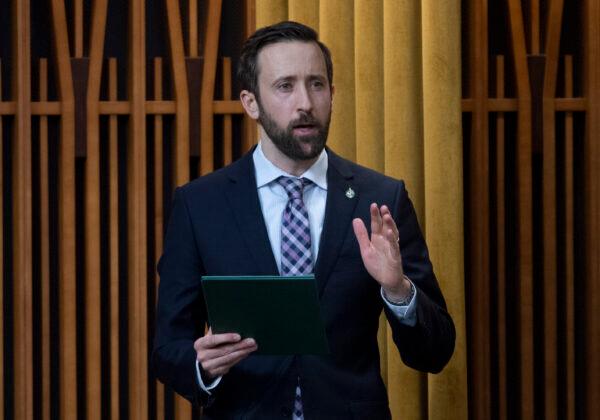Last week, British newspaper The Telegraph reported that the U.S. Senate is considering blocking the deployment of spy planes to Britain as a result of Prime Minister Boris Johnson’s decision to allow Chinese telecom giant Huawei to participate in the country’s 5G network.
The move, suggested as a provision to the U.S. National Defence Authorization Act for the next fiscal year, calls for the prohibition of the “stationing of new aircraft at bases in host countries with at-risk vendors in their 5G or 6G networks.”
If it becomes law, the change would block a plan to station two U.S. squadrons of F-35A Lightning II aircraft in Britain next year. The Telegraph reported that the U.S. is conducting a review of all US security and intelligence assets based in the U.K.
Washington has been pressuring its allies within the Five Eyes intelligence alliance (comprised of the United States, Canada, U.K., New Zealand, and Australia) to exclude Huawei from their 5G rollout given the security risks and the company’s close ties to the Chinese regime.
In January, Britain granted Huawei partial access to its next-generation 5G network, while Australia, the United States, and New Zealand have banned the company from their 5G infrastructure. Canada has yet to make a decision.
Richard Shimooka, a senior fellow at the Macdonald-Laurier Institute and an expert in Canadian and American foreign and defence policy, says Washington’s proposed move could be a push to bring both the U.K. and Canada onside.
“When it comes to the U.K.’s decision, as with us, it might be a nudge from the U.S. to change behaviour. Post-Brexit, the U.K. might be looking for whatever cards they can play, and I think they’d rather work with the U.S. than the Chinese,” Shimooka said in an interview.
“It could be a warning shot to other countries, suggesting that if you do this then this might be a consequence, and the country that they’d be pointing to in doing so would be Canada. That’s definitely a possibility.”
He adds that given the security concerns, Canada would be wise to steer clear of allowing Huawei’s participation in its 5G.
“By all reports, a lot of the equipment from Huawei is not very good, and people like [former CSIS head] Richard Fadden have said that we should ban it, and if someone like that is saying that, it’s more than likely not a good idea to have Huawei.”
There have recently been calls from within the U.K.’s ruling Conservative Party to block Huawei from any role in the country’s 5G network. The push comes amid wider calls within the Tory Party for a reset of relations with China over the regime’s lack of transparency on the COVID-19 outbreak, which fuelled the global spread of the virus.
The Trump administration had already warned its allies that it may limit intelligence sharing with them if they allow Huawei to participate in their 5G networks, due to concerns that U.S. data could be jeopardized by the company, which has close links to the Beijing regime.
“We are of course integrated with the U.S., so the U.S. is leaning heavily on Canada,” says Christian Leuprecht, a professor of political science at Queen’s University and a Munk Senior Fellow at the MacDonald-Laurier Institute.
“And it’s not just the Trump administration, it’s bipartisan. Both Democrats and Republicans, they know that once you have Huawei equipment in the Canadian network, it compromises the entire continent and the entire infrastructure.”
A spokesperson with the Communications Security Establishment, one of Canada’s security and intelligence organizations, says that while the CSE can’t comment on specific companies, an examination of emerging 5G technology and the associated security and economic considerations is underway.
“Canada’s review will consider technical and security factors, and include advice from our security agencies, and consider decisions from our Allies and partners,” Evan Koronewski said in an email.
As for U.K.-China relations, British Foreign Secretary Dominic Raab said at a press conference on April 16 that it can’t be “business as usual” with China once the pandemic is over and that Britain will have “hard questions” for the regime.
Leuprecht says this is a good time for middle powers like Canada to “band together” on the Huawei issue.
“Since there is going to be pushback on China, I think it could be a wise thing to do coordinate in regards to the Huawei decision. Given the ongoing discussion about China’s role in the virus within this coordination, maybe we can have a side discussion about Huawei in the process. We’re not building an anti-Huawei coalition, it’s a virus one, but it can be tacked onto the agenda,” he says.
“In terms of what the government should do going forward,” he adds, “it is this: we treat other authoritarian regimes like Iran, Russia, as adversaries and when it comes to China, we should see China among these adversaries and stop playing nice.”





